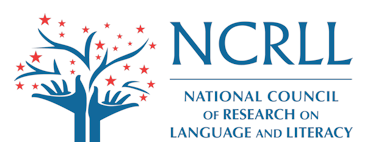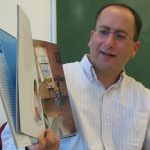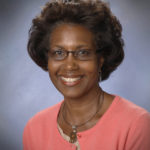At the 2017 NCTE Annual Convention, the National Conference for Research in Language and Literacy (NCRLL) hosted a panel session that addressed these issues in public education, featuring Garret Albert Duncan, Washington University in Saint Louis; Valerie Kinloch, University of Pittsburgh; and Timothy Lensmire, University of Minnesota. This blog post highlights their voices and suggests next steps.
Valerie Kinloch: Truth Speak: Black Lives and Public Education in Troubled Times
Truth Speak, Kinloch stated, is an inherent and visible danger of being Black, of Black life, of Black love, and of Black safety in this country. She reminded us of the many Black lives lost, such as Sandra Bland, who died in police custody in Waller County, Texas, in 2015, and whose death launched a national campaign and social movement known as #sayhername. Truth Speak, Kinloch stated, is recognition of the history of systemic violence; state-sanctioned physical, sexual, and verbal dehumanization; institutionalized racism; and socioemotional neglect of people of color, as blatant, violent racism unfolds today.
What might Truth Speak mean for language and literacy educators, and more generally for public education, in these troubled times?
First, as educators, we must stand and we must write against the criminalization and high rates of mass incarceration of Black and Brown people in this country. Second, we must work to contest the rhetoric of and the actions directed toward strategic sanctions and the many forms of deadly discord. Third, we must collaborate and connect. We must form a stronger collective to work against policies that allow racist practices in the name of “law and order,” such as stop and frisk, stand your ground, zero tolerance, or racial profiling.
Kinloch’s call to action ended with the poem “We the People, 2053” by Jamila Lyiscott.
Timothy Lensmire: Debunking White Privilege Pedagogy
In light of Truth Speak, how do we, a predominantly White teaching profession, teach as antiracists?
Timothy Lensmire posits that White people are not born White—they become White, as they endure and take up practices and positions within our White supremacist society. Lensmire argues that unexamined struggles among White people—across differences, as well as within local hierarchies of social standing and worth—work to support and reproduce White supremacy. He quotes James Baldwin: “White people in this country will have quite enough to do in learning how to accept and love themselves and each other, and when they have achieved this—which will not be tomorrow and may very well be never—the Negro problem will no longer exist, for it will no longer be needed.” Lensmire states that we have a White-on-White violence problem in the United States.
Lensmire worries that too much of the work of White antiracists in teacher education and educational research doesn’t actually escape this problem. Too often, instead of mobilizing other White people for antiracist action, we scapegoat them to create our own antiracist identities. Furthermore, we are cavalier or even dismissive of White people’s fear of abandonment or exile if they take antiracist actions, as if it is something simple to lose the love of families and friends, and as if we do not need to account for these risks in our antiracist pedagogies.
Current antiracist efforts in education and teacher education are often grounded in a White privilege framework popularized by writers such as Peggy McIntosh and Tim Wise. This framework has itself become part of the problem—in part, because White privilege pedagogies tend to imagine or address White people as little more than the smooth embodiment of privilege, when actual constructions of Whiteness are complex and messy. By embracing the complexity of racial identities, and the intersections of these identities with gender, class, and sexual orientation, and within historical, social, cultural, geographical, and religious contexts, we as educators are far better positioned to engender transformative antiracist understandings and actions for our students.
Garrett Albert Duncan: Love
What does it mean to teach with and through love? Garrett Albert Duncan speaks of love as a force that is instrumental for both a just and a socially just world amid a contemporary period of fragmented lives and genocidal violence. These two forms of justice exist in constant tension because a just world promotes personal autonomy, while a socially just world furthers the elimination of the suffering of denigrated communities.
Duncan quotes Malcom X: “I’m for truth, no matter who tells it. I’m for justice, no matter who it’s for or against. I’m a human being first and foremost, and as such I am for whoever and whatever benefits humanity as a whole.”
Duncan articulates dimensions of love as guiding forces for teachers of English and of literacy and learning. Duncan’s conception of love includes connectedness, or what Martin Luther King Jr. called “the inescapable network of mutuality.” He declares love as a fundamental, albeit often unacknowledged, dimension of social relationships that inhere in the teaching-learning process. He reminds us that “love is patient and kind; it is not jealous or boastful; it is not arrogant or rude” (1 Corinthians 13:4). In a loving relationship with students, teachers travel both within and across social groups, enacting an engagement of good faith, open-minded communication, and a mindful, honest pursuit of clarity.
Based in the work of Tara J. Yosso, Duncan advocates harnessing communities of wealth; in other words, teachers should harness vigorous diverse resources that generate these connections. We tend to conceive of power as abusive and destructive. Instead, teachers should embrace their positions of power, with the awareness that love is intimately related to power and justice. Duncan quotes King: “Power at its best is love implementing the demands of justice, and justice at its best is power correcting everything that stands against love.”
Conclusions
Truth Speak, countering White supremacy, and teaching with and through love are three powerful themes of this NCRLL-sponsored session. In the proposal for this session, we stated two pernicious problems facing systemic racism in public education:
(a) segregated schools persist, and
(b) desegregation is a start, not an end, to antiracism.
Derrick Bell (1976) states: “remedies that fail to attack all policies of racial subordination almost guarantee that the basic evil of segregated schools will survive and flourish, even in those systems where racially balanced schools can be achieved.’’ Kinloch, Lensmire, and Duncan provide a challenging but necessary pathway toward a more just society.





